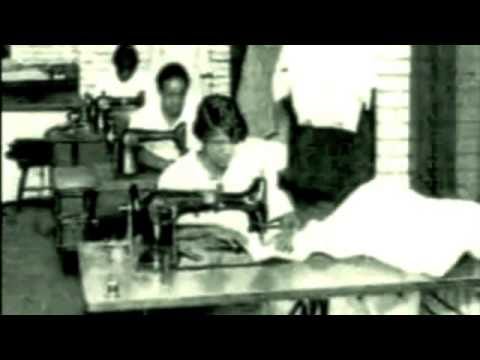For International Women’s Day, we are featuring entrepreneur and philanthropist Annie Turnbo Malone, who has the distinction of being the first Black woman to achieve millionaire status.
Born in Metropolis, Illinois on August 9, 1869, Annie was one of eleven children born to Robert and Isabella Turnbo. Having lost her parents when she was young, she was reared by an older sibling. A sickly child, Annie attended school in Peoria, Illinois. Despite not graduating, she discovered that she had a knack for chemistry.
Around the beginning of the twentieth century, she had created a product to straighten Black hair without damaging it. She began developing these products in her kitchen, experimenting with her sister’s hair first. Eventually, she rolled out an entire hair care and beauty product line for Black women.
In the book Black Fortunes: The Story of the First Six African Americans Who Escaped Slavery and Became Millionaires, author Shomari Wills notes:
“On a cold evening in 1878, as snow fell, the winter winds swirled outside a small wood-frame house in Peoria, Illinois. Inside the kitchen with a black wood-burning stove at its center, Annie Minerva Turnbo stood on a wood crate behind her older sister Sarah, parting and plaiting Sarah’s hair. Annie was nine years old with a round face the color of mahogany.”
Recognizing the need for a larger business market to sell her products, Turnbo relocated her growing business enterprise to St. Louis in 1902 as the city’s economy saw a meteoric rise on the heels of the 1904 World’s Fair.
As a Black woman, Turnbo had to find creative ways to make her way into distribution channels. She and her team pursued a door-to-door strategy where they gave demonstrations and offered free hair treatments to attract more customers. This led to a steady rise in business.
Says Wills in Black Fortunes:
“The black beauty industry in the years after slavery ended was dominated by traveling salesmen and beauty companies that sold products to alter the appearance of African Americans to make them look more like white people. Black skin removers, whitening pills, and hair straighteners were advertised in pamphlets, broadsides, and flyers with the goal of ostensibly helping black people to assimilate into white society.”
In 1914 Annie Turnbo married Aaron E. Malone, a school principal in St. Louis. By the close of World War I, she had become a millionaire and one of the most prominent Black women of her time. The esteemed Madam C.J. Walker was one of Annie Malone’s early employees and mentees.
Four years later, Malone’s company went national. After settling in St. Louis, she established a cosmetology school called Poro College which provided Black women a place to develop the requisite skills to advance in life. The building also served as the home of Malone’s business operations as well as a place for the Black community to gather. At the college’s height, it employed nearly 2,000 employees.
Malone’s booming empire, however, became mired in uncertainty when in 1927 her husband filed for divorce. As a part of the proceedings, he demanded fifty percent of the business. The dispute was eventually settled for the sum of $200,000 (the equivalent of about $3,204,620.69 today)
Undaunted, Malone relocated her business enterprise to Chicago in 1930. In the aftermath of the 1929 stock market crash as well as a series of lawsuits, her business struggled mightily for a time. She persisted though, eventually creating 32 new locations of the Poro School throughout the nation during the 1950s. Philanthropically inclined, she supported charities in St. Louis and around the country during the heyday of her success.
Malone died in Chicago on May 10, 1957, at Chicago’s Provident Hospital. While her legacy as a pioneer in the beauty and cosmetics business has largely been overshadowed by her former employee and mentee Madam C. J. Walker, her influence as a trailblazer for Black women entrepreneurs is unmatched in the annals of history.
As a fearless advocate for self-reliance, Malone shattered business barriers prevailing at the time that hindered economic opportunities for Black women. The manner in which she uplifted those around her holds historical significance for the many Black women entrepreneurs seeking to rise today.





For the correct account of Mrs. Malone’s life read “A Friend to All Mankind”